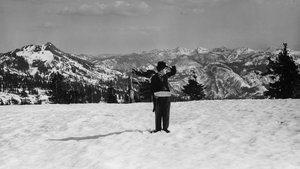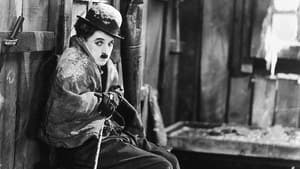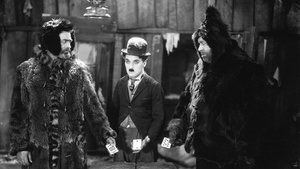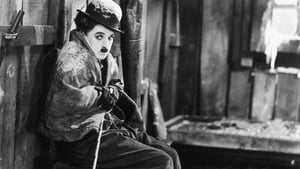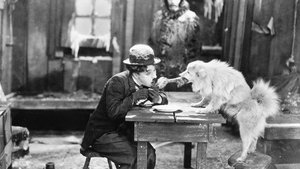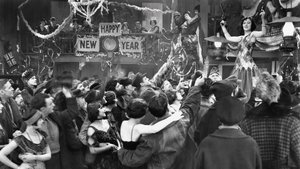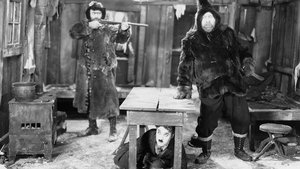Contact: info@alwanfilm.com
Video Sources 0 Views
- Watch trailer
- The Gold Rush

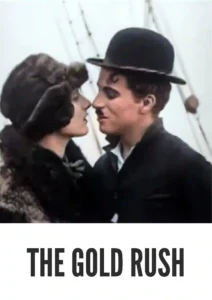
Synopsis
Table of Contents
ToggleReview: The Gold Rush 1925 Colorized – A Timeless Comedy Classic in Living Color

Introduction
“The Gold Rush” (1925) stands as a comedic masterpiece that has delighted audiences for generations. In this article, we’ll explore the significance of this early colored film, diving into its impact on comedy cinema and its enduring legacy in the realm of silent film.
Check The Full Colorized Movies List
Check Our Colorized Movies Trailer Channel
Understanding The Gold Rush 1925 Colorized: Director, Cast, and Genre
Directed by the iconic Charlie Chaplin, “The Gold Rush” (1925) showcases his unparalleled talent for blending humor with heartfelt storytelling. The film features Chaplin himself in the lead role, alongside a cast of talented performers who bring his vision to life on the silver screen. Blending elements of slapstick comedy, romance, and adventure, “The Gold Rush” (1925) transports viewers to the rugged landscapes of the Yukon, where fortunes are made and lost amidst the chaos of the gold rush.
Exploring the World of The Gold Rush 1925 Colorized: Plot and Characters
At its core, “The Gold Rush” (1925) follows the misadventures of Chaplin’s iconic Tramp character as he braves the harsh realities of life in the Klondike. Along the way, he encounters a colorful array of characters, from bumbling prospectors to ruthless outlaws, each adding their own unique flavor to the comedic chaos. As the Tramp navigates the treacherous terrain of the gold rush, he discovers that true wealth lies not in material riches, but in the bonds of friendship and the simple joys of human connection.
The Art of Film Colorization
Film colorization has the power to breathe new life into classic movies, offering audiences a fresh perspective on familiar stories and characters. By adding color to black and white films, colorization transforms the viewing experience, immersing viewers in vibrant worlds filled with rich detail and nuance. In the case of “The Gold Rush” (1925), colorization enhances the film’s visual appeal, allowing audiences to appreciate Chaplin’s comedic genius in a whole new light.
Early Colored Films: A Brief History
The history of colored films dates back to the earliest days of cinema, with filmmakers experimenting with various techniques to add color to their creations. From hand-tinted frames to early Technicolor processes, the evolution of colored film has been marked by innovation and creativity. As technology has advanced, so too has the art of colorization, with modern digital techniques offering filmmakers unprecedented control over the color palette of their films.
The Gold Rush 1925 and Its Early Colored Version
The decision to release “The Gold Rush” (1925) in a colorized format was met with both excitement and skepticism. While purists argued that colorization compromised the artistic integrity of the original film, others welcomed the opportunity to experience Chaplin’s classic comedy in vibrant color. Ultimately, the early colored version of “The Gold Rush” (1925) offers viewers a fresh perspective on the timeless tale of laughter and love, enhancing the film’s visual appeal and captivating audiences with its dazzling hues.
The Debate Over Film Colorization
The debate over film colorization is a contentious issue that continues to divide audiences and critics alike. While some argue that colorization revitalizes classic movies for modern audiences, others maintain that it detracts from the authenticity of the original work. As the debate rages on, filmmakers and audiences alike are left to ponder the merits and drawbacks of colorization in the ever-evolving landscape of cinema.
Examining The Gold Rush 1925 as an Early Colored Film
As with any colorized classic, the impact of colorization on “The Gold Rush” (1925) is a matter of personal interpretation. Some may argue that it enhances the film’s visual appeal and immerses viewers in its world, while others may feel that it detracts from the stark beauty of the original black and white version. Regardless of one’s stance on the issue, there’s no denying the enduring power of “The Gold Rush” (1925) as a timeless comedy classic that continues to delight audiences with its humor and heart.
Influence and Legacy: The Gold Rush 1925 Colorized’s Impact on Cinema
“The Gold Rush” (1925) has left an indelible mark on the world of cinema, inspiring countless filmmakers and captivating audiences with its timeless humor and universal themes. From its iconic imagery to its unforgettable characters, the film continues to resonate with viewers of all ages, reaffirming its status as a beloved classic of the comedy genre.
Director’s Cinematic Legacy: Beyond The Gold Rush 1925 Colorized
Charlie Chaplin’s influence extends far beyond “The Gold Rush” (1925), with a diverse body of work that continues to captivate audiences around the globe. From “City Lights” to “Modern Times,” Chaplin’s films are celebrated for their wit, charm, and humanity, solidifying his legacy as one of the greatest filmmakers of the silent era. Through his groundbreaking work, Chaplin has left an indelible imprint on the world of cinema, inspiring generations of filmmakers to follow in his footsteps.
Themes Explored in The Gold Rush 1925 Colorized
“The Gold Rush” (1925) explores a myriad of themes, from the pursuit of wealth to the power of friendship and resilience in the face of adversity. Through its timeless humor and heartfelt storytelling, the film invites viewers to ponder the complexities of the human condition and the enduring strength of the human spirit. As audiences journey through the snow-capped mountains of the Yukon with the Tramp, they are reminded of the universal truths that bind us together and the enduring power of laughter to uplift and inspire.
Reception and Controversy Surrounding The Gold Rush 1925 Colorized
Upon its release, “The Gold Rush” (1925) received widespread critical acclaim, with many praising Chaplin’s comedic genius and the film’s timeless appeal. However, the decision to release the film in a colorized format sparked debate among purists, reigniting the age-old discussion surrounding film preservation and artistic integrity. Despite the controversy, “The Gold Rush” (1925) remains a beloved classic that continues to captivate audiences with its humor and heart, reaffirming its status as a timeless masterpiece of the comedy genre.
Where to Watch The Gold Rush 1925 Colorized Online
For those eager to experience the timeless magic of “The Gold Rush” (1925), the film is readily available on popular streaming platforms such as Netflix, Amazon Prime, and Hulu. Whether you choose to watch it in its original black and white format or the early colored version, “The Gold Rush” (1925) promises to transport you to a world of laughter and love, where the human spirit shines brightest in the darkest of times.
FAQs About The Gold Rush 1925 Colorized
Q: Is “The Gold Rush” (1925) based on a true story? A: No, “The Gold Rush” (1925) is a fictional comedy that follows the adventures of Charlie Chaplin’s iconic Tramp character as he navigates the treacherous terrain of the Yukon during the gold rush.
Q: Who are the main actors in “The Gold Rush” (1925)? A: “The Gold Rush” (1925) features an ensemble cast led by the incomparable Charlie Chaplin, whose portrayal of the Tramp continues to captivate audiences with its humor and humanity.
Q: What awards did “The Gold Rush” (1925) win? A: While “The Gold Rush” (1925) did not win any major awards upon its initial release, it has since been recognized as one of the greatest comedies of all time, cementing its status as a beloved classic of the silent era.
Q: Why was “The Gold Rush” (1925) released in a colorized format? A: The decision to release “The Gold Rush” (1925) in color was made to introduce the film to a new generation of viewers and enhance its visual appeal for modern audiences. While the choice to colorize the film sparked debate among purists, it ultimately allowed “The Gold Rush” (1925) to reach a wider audience and ensure its continued relevance in the annals of cinematic history.
Conclusion
“The Gold Rush” (1925) remains a timeless testament to the enduring power of laughter and love in the face of adversity. Whether viewed in its original black and white format or the early colored version, the film continues to captivate audiences with its humor, heart, and humanity. As we journey through the snow-capped mountains of the Yukon with the Tramp, let us remember the universal truths that “The Gold Rush” (1925) imparts and the enduring legacy of Charlie Chaplin’s comedic genius.
